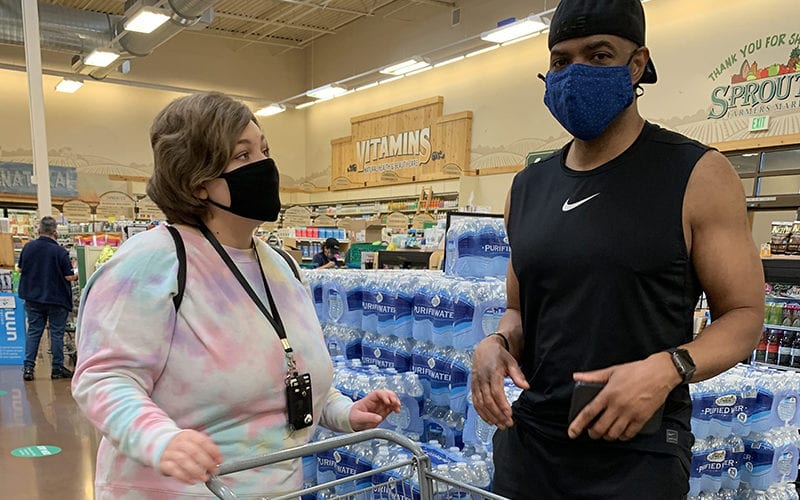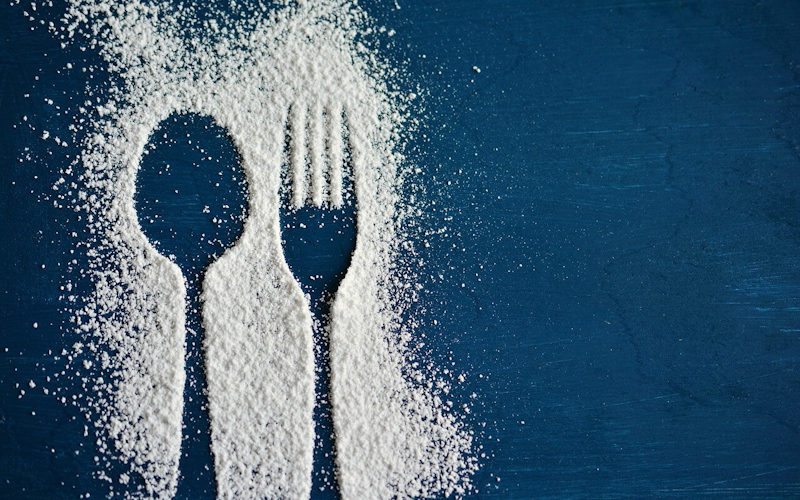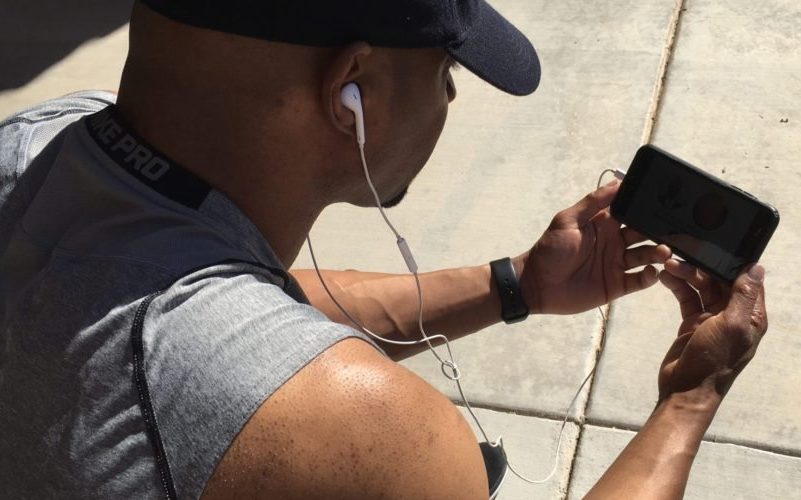An Unprecedented Time to Become a Healthier Version of YOU!
I was taught as a child to use my time wisely. I felt like I needed to be productive at all times. My practice today allows me to give my best to everything I do, but I’m also able to give myself some downtime to do whatever I want to do, without guilt. With government officials, infectious disease experts, and public health professionals providing guidelines to keep us safe, many of us are experiencing changes to our normal routine. What I am hearing the most is disruptions to healthy eating habits. What if we could turn that around and see this time of uncertainty as an opportunity to be healthier? What if we chose to make a fresh start to eat healthier and improve our health through nutrition? More than ever, we have the time to do just that. The excuse “I don’t have time to plan, prep and cook” has gone away for those of us who are spending more time at home.
I recently listened to an interview with Dr. Dariush Mozaffarian, Dean, Freidman School of Nutrition Science and Policy at Tufts University. Based on extensive research, he communicates what I’ve felt might be the case with our nation’s health as it relates to coronavirus. The information I share here is directly from Dr. Mozaffarian, the CDC and other scholarly (peer-reviewed) articles. Knowledge is power and my hope is to share this knowledge so that it might inspire someone to replace current eating behavior with consistent, long-term nutritional habits that can restore their health. It’s not too late. By helping yourself, you help others.
First, some statistics:
- Only 12% of Americans are metabolically healthy. Basic criteria for being healthy includes waist circumference, blood glucose, triglyceride levels, cholesterol levels, and hypertension. The Center for Disease Control (CDC) considers the following to be “unhealthy”:
- a waist that measures over 40 inches in men or over 35 inches in women
- fasting blood glucose of 100 to 125 mg/dL indicates you have pre-diabetes, and 126 mg/dL or higher indicates you have diabetes
- fat, or triglyceride, levels in the blood of 150 milligrams per deciliter (mg/dl) or above
- total cholesterol over 200 mg/dL, LDL (“bad”) cholesterol over 100 mg/dL, or HDL (“good”) cholesterol below 60 mg/dL
- hypertension – blood pressure at or above 130/80 mm Hg
- In 2017–2018, the age-adjusted prevalence of obesity in adults was 42.4%. It’s gone up from there.
- Two in three adults are overweight or obese.
- Half of American adults have diabetes or pre-diabetes.
- Nearly half of the U.S. population has hypertension. Only 1 in 4 of those affected have their condition under control.
- Healthcare costs in the last 50 years have risen from 5% of the federal budget to 30%. Same thing for states.
- U.S. businesses in 1970 spent a total of $80 Billion dollars on healthcare – adjusted for inflation they now spend 1.2 trillion dollars on healthcare.
- Though people of all ages are affected by coronavirus, many of those who develop severe complications after contracting it have preexisting medical conditions. According to a CDC report, nearly 90% of adult patients hospitalized with COVID-19 in the US had one or more underlying diseases.
- Clear link between people who have chronic diseases (many of which are diet related) and how sick these people get from coronavirus.
- Most people who are metabolically healthy do not get that sick from Coronavirus.
Many people are asking “What can we do?” We are told to wash our hands, social distance and wear a mask. Clearly, there seems to be something else the majority of Americans can do, that would significantly reduce their risk for getting critically ill from COVID-19.
What if….
- People used this time at home to learn just one new piece of nutrition knowledge each and every day and applied it in their life?
- People spent a little bit of time learning to cook instead of going out to eat?
- Our medical establishments, large food industries and government focused on keeping and/or getting us healthy instead of supporting big business ($$$) and prescribing medication for food-related chronic diseases (sorry, that’s a separate blog all on its own)?
- People made their health a priority?
Is it possible that this pandemic might not have had such devastating results if we were healthier as a nation? Research would suggest, yes. The pandemic might not have had such a crippling effect on our healthcare system, economy, and communities. Dr. Mozaffarian says there is hope and millennials are leading the way. They are demanding food that is healthier, sustainable and trustworthy. Businesses are hearing this. Dr. Mozaffarian says that businesses that don’t adapt will not be here in 20 to 30 years! Let’s be inspired by this generation and do our part to lead the way by starting now. Do your own research, learn, share and take intelligent action, if you can. Make the best of this unprecedented time. It could make all the difference in the world for you and your loved ones.
Amy
Load Comments

















